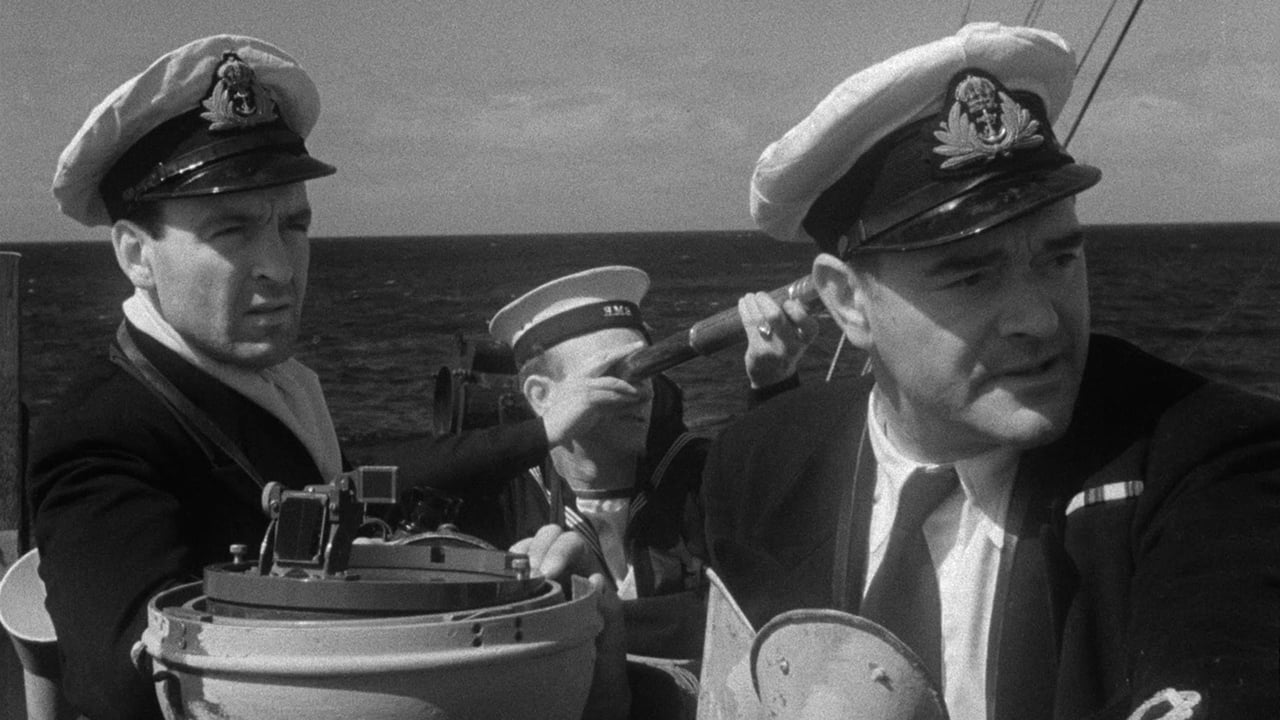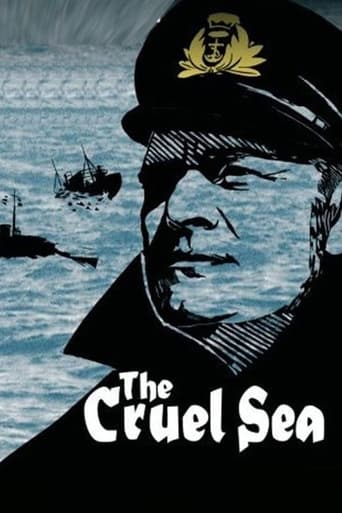

Very Cool!!!
... View MoreAm I Missing Something?
... View MoreYour blood may run cold, but you now find yourself pinioned to the story.
... View MoreThe story, direction, characters, and writing/dialogue is akin to taking a tranquilizer shot to the neck, but everything else was so well done.
... View MoreI read the book when I was very young. It was a Book-of-the-Month Club selection and my mother was a member. I was very interested in learning all about WWII and wasn't sure it was OK to read fiction to improve my knowledge. I don't know when I first saw the film. There were only two first-run theaters in my hometown in the early 1950's. But I eventually saw the film and 40 years later purchased the DVD.Now I probably watch the film twice a year. I watched not so long ago with a friend when my wife was out for the evening. He became completely engrossed. I think he teared up in the scene where Erickson says "There are some men in the water just there." At the end, all my friend said was, "Well!" There are any number of superb reviews here. So this is added only as a heartfelt "Yes!"
... View MoreMy grandfather served on corvettes (the type of ships portrayed in this film)and he always said that this movie was one of the few examples of what it was truly like to serve on these boats in the North Atlantic convoys of WWII. I have watched this film many times and it is a great film and a true classic. I highly encourage anyone wanting a taste of what life was like for those brave sailors to watch this movie. It will not disappoint. The acting is excellent and the plot generally follows that of the novel of the same name, by Nicholas Monsarrat. It shows the tedious boredom of life afloat, the nerve-wracking suspense of the hunter and the hunted, and the intense action of combat. One of the finest war movies ever produced.
... View MoreThere's a lovely detail in this film that seems to have been largely overlooked. When the Compass Rose is sunk, we see a rating pulling a fellow crew member onto a life-raft with the words, "Alright mate, I've gotcha". Later in the film the same words are used a survivor of a recently-sunk U Boat is hauled on board the Compass Rose's successor. This is the kind of detail that makes The Cruel Sea such an exceptional book and film. It also deals with the issue of Post-Traumatic Stress Disorder (PTSD}, formerly known as shell-shock, well before the syndrome had achieved an acronym. The film adaptation of Nicholas Monsarrat's novel must surely be considered one of the more faithful transitions from book to screen.
... View MoreEaling Studios which has come down to us in history as the home studio of British comedies, particularly those of Alec Guinness produced this fine, but unusual product for its reputation. The Cruel Sea is a no frills drama set in World War II about the men serving on board a corvette class cargo escort ship.It's not glamorous duty this ship is involved in. They are just escorting vitally needed supplies to the western and later Russian fronts not to mention the bare necessities for the civilian population of Great Britain. The run to Murmansk on the Arctic Ocean was the most dangerous with the long coastline of occupied Norway home to innumerable bases for the U Boats to operate.Jack Hawkins does a fine job as the stalwart captain and a good cast as the crew supports him. Standing out is Stanley Baker who in an unusual part for him plays an insecure lieutenant who masks his insecurities with petty shows of tyranny. The usual plot situations involving navy films are all here. The film is similar in many ways to the Trevor Howard film, the Gift Horse which came out around the same time.The Cruel Sea got an Oscar nomination for Best Screenplay, but lost to From Here To Eternity which won many Oscars that year. Definitely worth a look when broadcast.
... View More